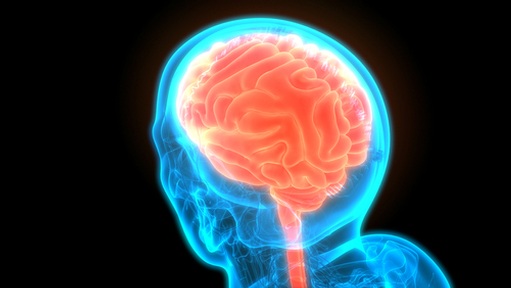Widow of 1966 World Cup winner Nobby Stiles donates football star's brain for dementia research
The widow of England’s 1966 World Cup winner Nobby Stiles has donated her husband's brain to scientists researching sports-related dementia and is urging ex-footballers with the disease to sign up for brain donation.

Ex-Manchester United star Nobby Stiles who won 28 England caps, died aged 78 last October after being diagnosed with Alzheimer's disease.
His family donated his brain to the Glasgow Brain Injury Research Group (GBIRG) which is investigating the link between traumatic brain injury (TBI) and impact-related dementia chronic traumatic encephalopathy (CTE).
Believing head injuries on the football pitch contributed to his dementia, the football legend’s wife Kay Stiles told the Daily Mail: “We had briefly spoken about the donation of Nobby's brain during his illness.
“But it is a very hard thing to think about when you're still seeing the person every day.
"However, when Nobby passed away I thought of how much he had suffered. If by donating his brain it could help stop one person suffering as he did, then we must do it.”
70% of care home residents have dementia or severe memory issues
No less than 70 per cent of people in care homes have dementia or severe memory problems, according to the Alzheimer's Society.
Nobby Stiles’ sons John and Rob are convinced that CTE killed their dad.
Retired Leeds United midfielder John Stiles said: “To me it was crucial we donated his brain to help the cause of former players, of which I am one, and current players, many of whom are suffering and will suffer the horrors of dementia.
“The decision, however, was my mother's and I'm proud to say she had the courage to do so.
“A brain autopsy is the only way to definitively prove the scandal in football of heading induced CTE.
“It is a hard decision to make, but I ask all football families to consider the fact that by getting definitive proof it can make a real difference.”
The family said the results of the autopsy confirmed what they had suspected all along that he suffered CTE associated with TBI and head impact exposure, due to his prior participation in football.
Scientists claim the donation of Nobby Stiles' brain has advanced their knowledge of sports-related brain injury effects. Last year, Sir Bobby Charlton became the fifth of England's 1966 World Cup winners to be diagnosed with dementia.
Neuropathologist Dr Willie Stewart is leading the research team involving ex-players’ autopsies and is urging families of ex-players to seriously consider brain donation.
On the subject of how to reduce the risks associated with professional football, Dr Willie Stewart tweeted on 8 February (@WillStewNeuro): 'I have problems w #concussion reducing plans in sport as eg players need to 'improve tackle technique' or 'do exercises to reduce risk.
'Places responsibility on players (brain injury their fault), often w no evidence base, when it's the game that should be reducing risk.'
Latest News
 29-Jul-24
Dementia Bus gives carehome.co.uk staff insight into life with dementia
29-Jul-24
Dementia Bus gives carehome.co.uk staff insight into life with dementia
 01-Mar-24
Find out the top care homes in 2024
01-Mar-24
Find out the top care homes in 2024
 21-Mar-23
UK's top care homes in 2023 revealed
21-Mar-23
UK's top care homes in 2023 revealed
 03-Jan-23
carehome.co.uk launches free care helpline
03-Jan-23
carehome.co.uk launches free care helpline
 13-Dec-22
5 mins with Emily Whitehurst, chief operating officer for Constantia Healthcare
13-Dec-22
5 mins with Emily Whitehurst, chief operating officer for Constantia Healthcare